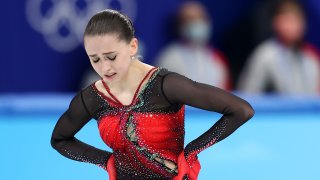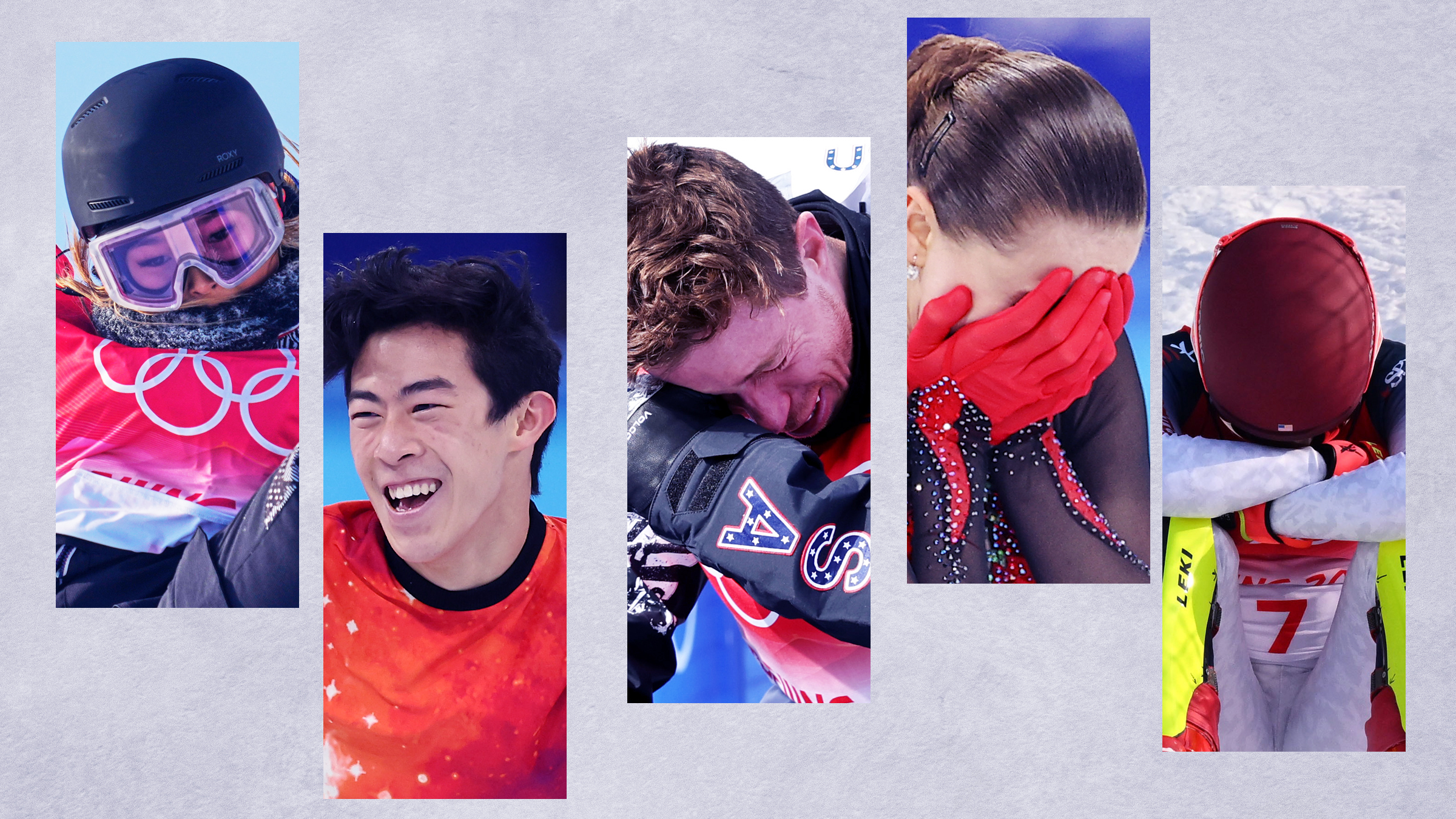
Every four years, the Winter Olympics displays tremendous talent and athleticism among the greatest winter-sport athletes worldwide.
Unfortunately, the action isn’t always as straightforward as athletes winning and losing in their respective sports. This year in particular, there were numerous controversial moments that took over the grand Olympic stage.
As the Closing Ceremony marks the end of the Beijing Winter Olympics, let’s take a look at some of the Game’s biggest controversies:
Uyghur athlete delivers Olympic flame
We've got the news you need to know to start your day. Sign up for the First & 4Most morning newsletter — delivered to your inbox daily. >Sign up here.
Dinigeer Yilamujiang, a 20-year-old ethnic Uyghur from Xinjiang, was one of the two athletes to deliver the final Olympic flame in the Beijing Opening Ceremony.
The U.S. government and others have condemned the Chinese government for the way they treat the Uyghurs, a Muslim minority group, saying it is tantamount to genocide.
Beijing 2022 Winter Olympics
Watch all the action from the Beijing Olympics live on NBC
In December, the U.S. announced a diplomatic boycott of the Winter Olympics, citing rights abuses in China. Australia, Great Britain and Canada followed with their own boycotts. Beijing has denied all allegations of mistreatment.
Yilamujiang, a cross-country skier, was joined by Zhao Jiawen, a 21-year-old biathlete, as the pair placed the symbolic flame inside a large snowflake.
Russia’s Valeria Vasnetsova speaks on poor quarantine meals
Russian biathlete Valeria Vasnetsova tested positive for COVID-19 twice during the Winter Olympics and was removed from competition.
The 24-year-old, who was quarantined in Beijing, took to her Instagram story to say that the food she was given was "inedible" and "impossible" to eat. The photo displayed plain pasta, a scoop of red sauce, two kinds of meat, and a few pieces of potatoes.
“My stomach hurts, I’m very pale and I have huge black circles around my eyes,” Vasnetsova posted on Instagram. “I want all this to end. I cry every day. I’m very tired.”
Sergei Averyanov, the ROC biathlon team spokesperson, later said the meals were improved after many athletes in isolation had expressed disapproval.
American Vincent Zhou removed from competition after positive COVID-19 test
U.S. men's figure skater Vincent Zhou tested positive for COVID-19 while in Beijing and was removed from competition.
The 21-year-old placed third in the men's free skate portion of the team event for the eventual silver medalists a day before his positive test. Zhou was preparing to compete in the men's individual short program before being forced to withdraw.
Zhou said in a video that he had been isolating himself for a few months leading up to the Games to avoid the virus but ended the clip noting, "This is not the end. This is a setup for a bigger comeback."
Men's snowboard halfpipe final officiating
Japanese snowboarder Ayumu Hirano won gold in the men's halfpipe final, but that milestone was almost overshadowed by a judging controversy.
The 23-year-old nailed a triple cork for the first time in Olympic history in his second run, but only received a score of 91.75 by the judges, short of a first-place finish.
In Hirano's third run, he displayed even more spectacular talent by landing the triple cork yet again, earning a score of 96 and the gold medal.
The judging in the event revealed some discrepancies in the scoring process that Hirano revealed made him "angry."
“We want to have sound standards and I think we should look into exactly what the judges were looking at,” Hirano told AFP. “For the athletes, they’re putting their lives on the line, they’re giving it their all. So for the riders, I think some steps need to be taken to address this issue regarding the judges.”
Kamila Valieva cleared to compete in figure skating event amid doping scandal
After helping the Russian Olympic Committee (ROC) to a first-place finish in the team event, Kamila Valieva had a positive doping test from Dec. 25 come to light. She tested positive for trimetazidine, a drug typically prescribed to older patients with heart conditions.
The 15-year-old was cleared to compete in the individual event by the Court of Arbitration for Sport (CAS) due to "exceptional circumstances" linked to her status as a minor.
The CAS also said that Valieva did not test positive during the Games and not allowing her to compete "would cause her irreparable harm in these circumstances."
This decision sparked immediate backlash from many around the world.
American Julia Marino impacted by Rule 40 for Prada snowboard
American snowboarder Julia Marino broke Team USA's medal drought by winning a silver in the women's snowboarding slopestyle event.
Eight days later, it was announced that the 24-year-old would not be competing in the Olympic debut of big air.
Due to Rule 40 of the Olympic charter, Marino's sponsored Prada snowboard was no longer approved between her two events.
Rule 40 of the Olympic Charter establishes the expectation of Olympic participants to "respect and comply" with the different institutions associated with the Olympic movement.
However, Marino could have been protected by the third bylaw which states: “competitors, team officials and other team personnel who participate in the Olympic Games may allow their person, name, picture or sports performances to be used for advertising purposes during the Olympic Games in accordance with the principles determined by the IOC Executive Board.”
Freestyle Skier Eileen Gu represents China in Winter Olympics
Eileen Gu has racked up three medals in Beijing -- two gold, one silver -- to become the first freestyle skier to win three medals at the Winter Olympics.
The 18-year-old was born in the United States to an American father and Chinese mother. She has been competing for China since June 2019 to ensure she would get to represent the country in the 2022 Winter Olympics.
In the change, she announced she hopes "to help inspire millions of young people" in China and "to unite people, promote common understanding, create communication, and forge friendships between nations."
Gu has also said in interviews: "Nobody can deny I'm American, nobody can deny I'm Chinese." She also said: "When I'm in the U.S., I'm American, but when I'm in China, I'm Chinese."
Figure skater Zhu Yi blasted by Chinese social media after poor performance
China's Zhu Yi was bashed by Chinese social media after falling twice in the free skate team competition, landing the lowest score and knocking the team down to fifth.
The 19-year-old was born in the U.S. but chose to compete for China in 2018.
Comments like "Zhu Yi has fallen," "This is such a disgrace," "How dare you skate for China?" were trending on the Twitter-like platform popular in China called Weibo.
Yi was chosen to compete in her sport over athletes born in the country, which sparked controversy and debate.




